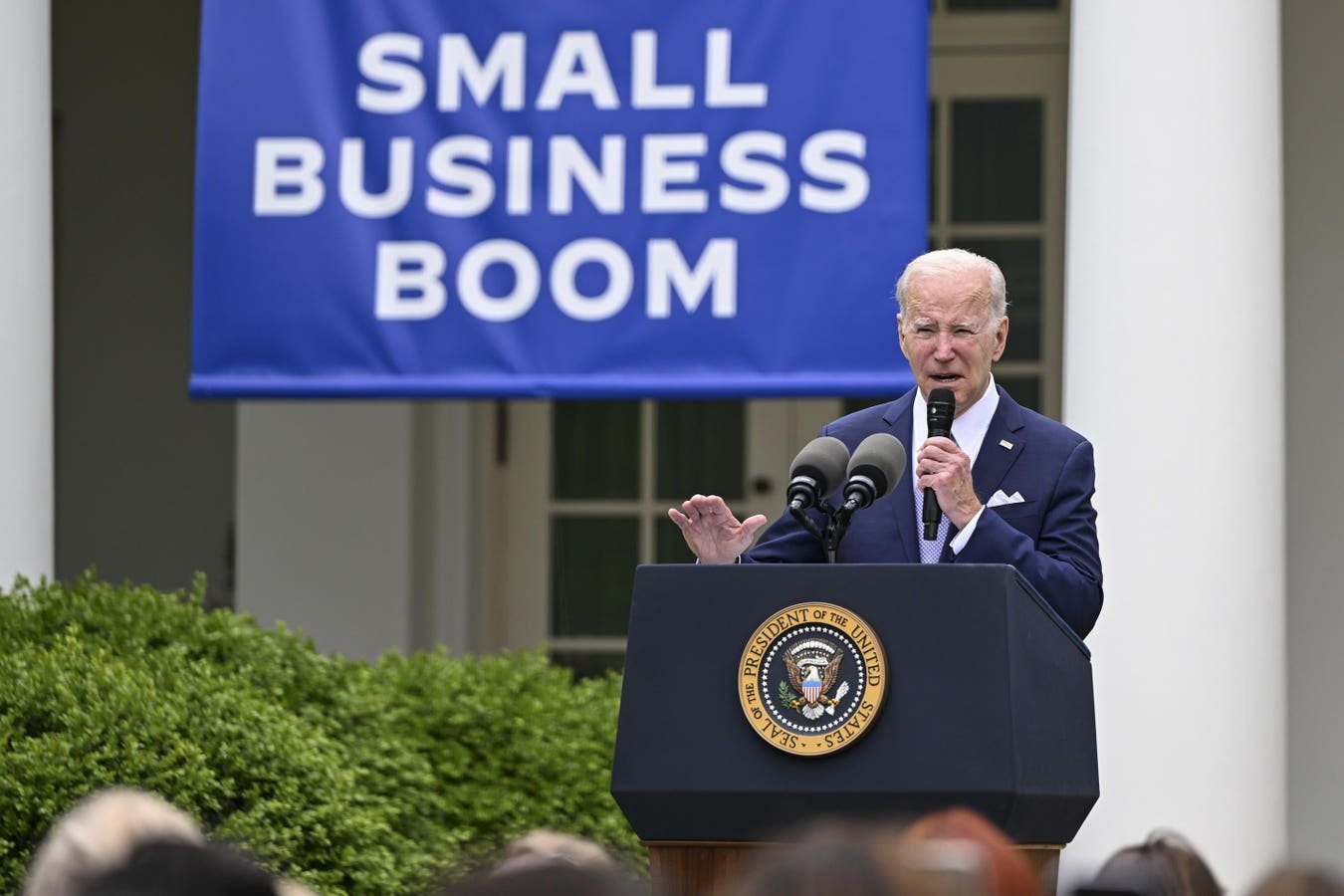
WASHINGTON DC, UNITED STATES – MAY 1: US President Joe Biden speaks at the National Small Business … [+]
Last week was National Small Business Week. The more than 60-year-old event recognizes the critical contributions of America’s entrepreneurs and small business owners. There was a great deal to celebrate this year.
The U.S. Census Bureau has been tracking business formation statistics since 2004 and data released earlier this year showed that nearly 16 million new recorded business applications since the start of the Biden-Harris Administration, an unprecedented number. That represents an approximately 85% increase in the average flow of monthly applications relative to the period between 2004 and January 2021. The monthly average of 440,000 new business applications over the past three years is also 46% higher than the average of 2017 through 2020 combined.
“As we mark another National Small Business Week, we are excited to take the opportunity to recognize the important progress made by women owned businesses in the last several years,” said Jen Earle, President and CEO of the National Association of Women Business Owners (NAWBO). “Amidst the historic growth in new small businesses since 2021, women entrepreneurs are leading the way. In 2023 alone, women-owned businesses had an estimated $2.1 trillion in receipts, 10.5 million employees, and $499.4 billion in annual payroll.”
The Small Business Administration (SBA) also released its Procurement Scorecard showing that in Fiscal Year 2023, the Biden-Harris Administration awarded a record-high of $178.6 billion in federal contracts to small businesses across federal agencies.
“This milestone is significant, first because it represents an increase of more than $15 billion from the previous fiscal year, including increases to nearly all demographics of minority-owned firms.” said Justin Nelson, President and Co-Founder of the National LGBT Chamber of Commerce (NGLCC).
“While we were encouraged by the SBA Federal Procurement Scorecard, which demonstrates a historic $178.6 billion investment in the small business economy, we would be remiss if we did not acknowledge that the federal government fell short in its 5% goal for the Women Owned Small Business Program (WOSB).” said Angela Dingle, President and CEO of Women Impacting Public Policy (WIPP). “This year, the government came closer to reaching its goal as it awarded over $30 billion in federal contracting dollars, up from $28 billion the prior year.
In addition, the Personal Consumption Expenditures Price Index shows that inflation is down two-thirds from its peak and is at its lowest level in nearly three years. Meanwhile, income is up more than 2% over the last year when accounting for inflation and unemployment has remained below 4% for two full years, which is the longest stretch in half a century.
This may explain why optimism amongst small businesses is at its highest point in more than 20 years. PNC’s latest semi-annual survey of small and mid-sized businesses found that 55% are highly optimistic about the national economy, which is up from 26% from a year ago. Also, 79% said they are highly optimistic about the prospects for their own businesses. This is a 22-year high in optimism. The positive outlook among CEOs is also high, as the Business Roundtable Q1 CEO Economic Index found that 77% expect their sales to increase in the next six months.
“As we celebrate National Small Business Week, it serves as an opportunity for us to recognize the significant contributions and progress made by small and micro-businesses in California and across the country,” said Carolina Martinez, CEO of the California Association for Micro Enterprise Opportunity (CAMEO).
This optimism also appears to be similar with consumers, with the White House’s National Economic Council (NEC) reporting that the GDP grew faster in the second half of 2023 than any point from 2015 through the pandemic. The NEC has also found that consumer sentiment is up nearly 30%, making it higher at this point under Presidents Obama, Bush, Clinton, and Reagan. The growth is being felt across the country.
“Asian American, Native Hawaiian, Pacific Islander (AANHPI) business owners represent one of the strongest segments of the economy, with AANHPI buying power expected to reach $1.6 trillion this year alone. AANHPI businesses employ over 5 million people, and the majority have an optimistic outlook on the future of their businesses,” said Chiling Tong, President and CEO of the National Asian American Pacific Islander American Chamber of Commerce and Entrepreneurship.
It is important to remember that National Small Business Week had to be rescheduled just four years ago because of Covid-19. The optimism being expressed now is a sign of how far Main Streets have come since then.
However, any small business owner will tell you that one can’t rest on their laurels and that a crisis can happen at any time. More work is needed to lower healthcare costs, improve access to capital, and level the tax playing field to make Main Streets more stable and prosperous.



